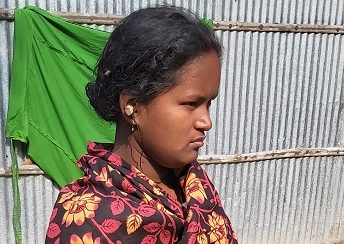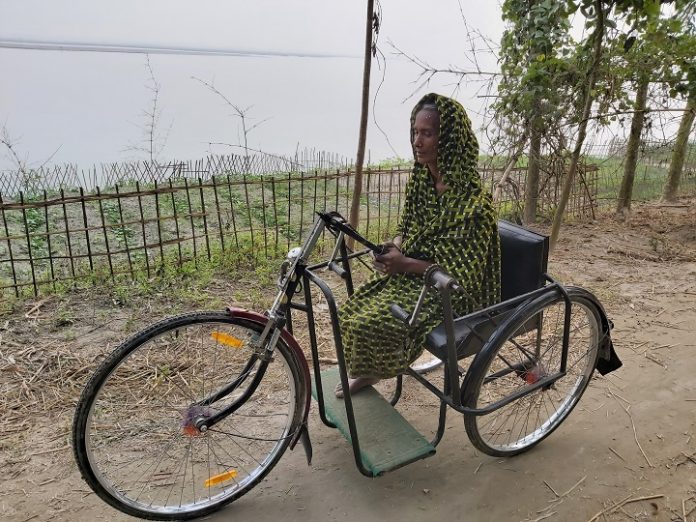Jobeda Begum, 42, lost a leg in her childhood in an accidental fire. Since then, she walks with a crutch. Married off early, Jobeda is childless but has an adopted son to look after. Her husband lives in Dhaka for low-paid daily work and can support his family only occasionally.
Despite her physical condition, Jobeda took up a domestic help’s job to raise her son but soon realised how difficult it is to do the chores with a crutch. She shifted to dish cleaning work at a nearby restaurant, but her struggle remained.
Late last year, she received a tricycle from Prosperity project. The initiative was part of the project’s assistive device support programme to increase mobility of persons with disability. Now Jobeda can move more freely to and from her cleaning job or any other places she might need to go.
“I am no longer dependent on others because I can now move alone and work comfortably sitting on this tricycle,” said Jobeda, from Shoulmari union of Nilphamari district.
Under its Disability Inclusion component, Prosperity provides assistive devices (e.g. hearing aid, white cane, tricycle and crutch) to project participants and their family members having physical disabilities. With the help of these devices, many like Jobeda are contributing to their family by performing household chores or engaging in income-generating activities.

Those who are physically capable get IGA training and financial support for establishment of IGAs that are appropriate for them. They feel empowered because of this mainstreaming activities. As a result, many participants are now directly contributing to household income by engaging in poultry or goat rearing, tailoring, and other viable IGAs.
Other activities to mainstream and empower persons with disabilities include support for their registration as PWDs, which is mandatory for availing social safety net allowance. Through linkage building, the project also connects PWDs with the local government offices for their inclusion in the safety net programmes.
Lalita Rani Roy, 24, was overwhelmed with emotion after she received a hearing aid from the project.
“I never knew that such a thing existed. Now I am the happiest person on earth because I can hear my loved ones,” said Lalita, who was born with a hearing impairment.


